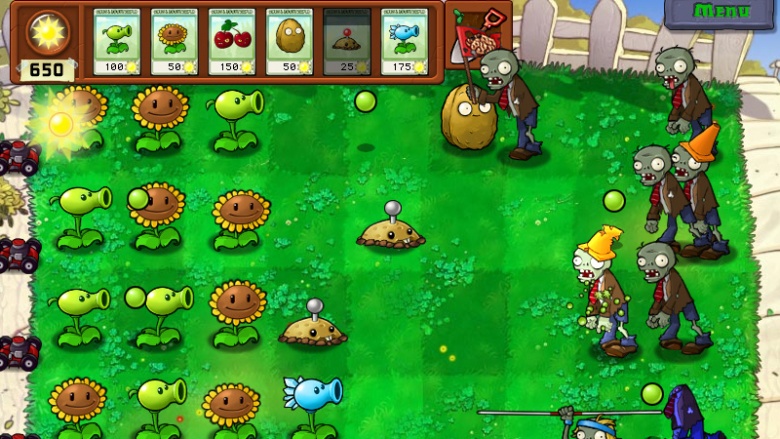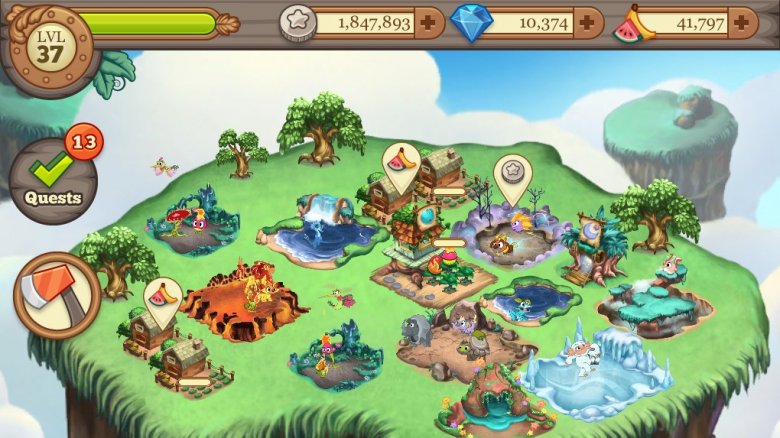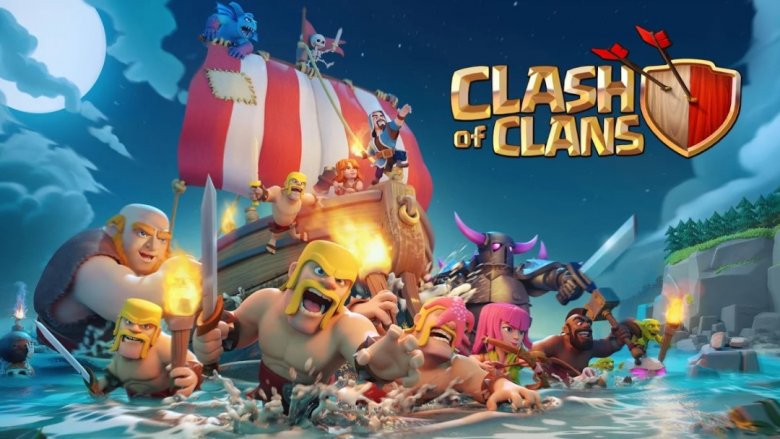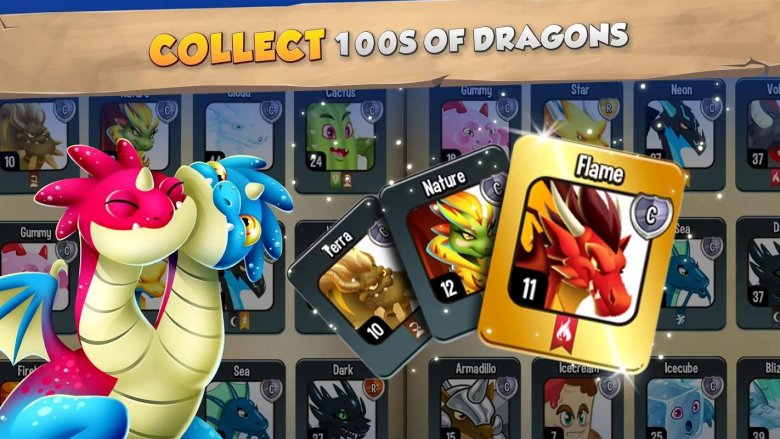Kids Who Wasted Thousands Of Dollars On Gaming
The idea of a "free" game is a warning: Nothing good in life is free, and free games are just too good to be true. These games make their money by getting you hooked with a free download, then charging for all the bells and whistles you just have to have. Unfortunately, kids aren't as wise to the ways of the world as adults, and they have to learn the hard way. Also, parents need to learn the hard way that it's a very, very bad idea to give Junior access to your passwords and credit cards.
$6,000 in Jurassic World
It only took Faisall Shugaa December 13-18 to charge up an impressive $6,000 on his dad's credit card. The charges made by the 7-year-old sent dad Mohamed Shugaa into a tailspin, as he only discovered the spending spree when he tried using his card to pay distributors for his Sussex Carpet Centre business. The little gamer from Crawley, England, spent the money buying upgrades for his Jurassic World park and new dinosaurs — meanwhile, the elder Shugaa demanded a refund on the basis that Apple should have not only notified him of the charges, but questioned them, as they should have known that a grown man would probably no interest in purchasing virtual dinosaurs.
Apple ultimately refunded the money, but Shugaa was still unhappy about how long it took, and went on to claim that Apple should ultimately pay more attention to what his son was doing. He was quoted as saying, "Apple should take more responsibility. There should be more parental checks and they should follow up payments." We could substitute "parents" for "Apple" and that statement would be just as true.
$1,400 in FarmVille
In all fairness, this kid started with his own savings before snagging his mom's credit card to feed his farming addiction. The 12-year-old remained unnamed, as did his mom, but she did go public with a very important message about making sure kids understood what was going on when you hit the purchase button. In his case, what happened was charges amounting to a grand total of around $1,400.
According to her, her son knew exactly what he was doing. He was shocked, she said, but when she asked why he spent so much on a "stupid farming simulation," he simply explained that there was good stuff that he wanted. Not everything from the mouths of babes is profound.
All attempts to get either Zynga or her bank to refund her son's spending spree failed. She was told that, in order to get the money refunded, she would need to report a crime — otherwise, she was the proud owner of a shiny, new, fake farm. While she did admit that it was entirely her son's fault, she also suggested failsafes be put in place to keep it from happening again. What that would be, aside from banning all Farmville purchases ever, we have no idea.
$4,500 in the Apple Store
Doug Crosson, unlike the folks above, didn't hesitate to call the cops on his 13-year-old son, Cameron. The teen had amassed around $4,500 worth of spending on a variety of games, like Nova 3, Gun Bros 2, Gun Builder, Infinity Blade, and Plants vs. Zombies. According to Cameron, the spending had been accidental, as his father's credit card was in the system and he somehow slipped his way into using it. Over and over again.
When the elder Crosson got in touch with his credit card company, they told him he would need to file a fraud report against his son. So, he got in touch with the UK government's National Fraud Authority, who in turn reported the teen's spending to the police. From there, the police would have to decide whether or not it was an actual crime, if they wanted to question the teen, and if the whole thing would be pursued.
The elder Crosson, who is also a police officer, said of Apple's practices, "I am the father of a studious, polite and sensible 13-year-old who has been duped after uploading free children's games on his iPod and iPad. None of us had any knowledge of what was happening as there was no indication in the game that he was being charged." Aside from the price tags and statements on credit card accounts, that is.
$1,800 in Counter-Strike
Jordan Bruce stole his dad's credit card to feed not only his gaming habit, but his gambling habit. He gambled away around $1,800 in a bizarre sort of underground culture that has grown up around Counter-Strike, and his spending is only the tip of the iceberg. According to the 18-year-old, his interest was fueled by YouTube personalities who encouraged the whole thing.
One of the things you can get in the game are skins, which are applied to weapons to trick them out with colors, flames, etc. Since the skins can be traded on the Steam Community, they're worth actual, real dollars. If that's not enough, various third-party web sites allow players to gamble with their skins, betting on the outcome of in-game skirmishes. That's against Valve's rules, and it's also illegal gambling in some places. That's doubly important, considering most of the age-restricted warnings are presumably things like, "You're over 18, right? Cross your heart, hope to die? Yes? Coolies, happy gambling."
While they're not technically gambling for real money, that's where things get hinkey. Sites that facilitate the buying and selling of skins (like SkinXchange) report that every day, they're calling clueless parents to report that Junior is trying to dump thousands of real dollars on skins that they're then going to head off to gamble with. And that's a problem, one that's led to who-knows-how-many kids like Jordan gambling away Mom and Dad's hard-earned cash.
$5,300 in FIFA 16
This one's pushing the limits of "kid," but it's definitely well into the territory of "should know better." Lance Perkins gave his 17-year-old son a credit card that, he specified, was to be used for emergencies only. Great idea, except Perkins's son defined "emergency" as "needing more cash for FIFA '16."
When Perkins got the bill, it was for almost $8,000 Canadian. That's around $5,300 US, a spending spree that his son claimed was an accident. He meant to buy just the game — he hadn't know that he was buying virtual money with real money. Honest.
The credit card company told Perkins the purchases would stand, unless he wanted to charge his son with fraud (we're starting to think the fraud thing is in their customer-service script). His inquiries to Xbox and Microsoft got a similar reaction, and they also told him he should have set the parental controls before not only letting his son play, but giving him a credit card.
$4,500 in FIFA
13-year-old kids don't make the best decisions in the world, particularly monetary decisions — in the case of the Hillman family, they probably should have realized something was wrong when their son spent $4,500 on extras for his FIFA game. And just as proof that this can happen to anyone, Washington D.C.-based Jeremy Hillman is the World Bank director of corporate communications. And his kid spent thousands on fake soccer.
The elder Hillman says that he had entered his credit card information into his son's Xbox account, and while he accepts that he's at least partially to blame, he's also joining other parents in demanding Microsoft take at least some responsibility too. According to Hillman, his son had tried to purchase a player pack for just $100, and "it hadn't worked, so he tried a couple more times." It apparently went through each time. All 45 times.
On his original blog post (that's since been deleted), Hillman suggested that someone should get a class-action suit together to protest all these children who are spending all this money on games. Later, he noted that he hadn't filed any such request himself, and that he had simply paid the bill.
$1,700 on Xbox
Video games have been accused of a lot of things, from instilling an irrational love of violence in the world's kids to ... instilling a terrifying love of blood and gore into the world's kids. In 2011, one mom accused the Xbox of something entirely different: being a crappy babysitter.
Brendan Jordan's mom, Dawn, is a single mother working two jobs to support her and her son (admirable). But, she also set her sights on Microsoft when 11-year-old Brendan charged up nearly $2,000 to her credit card. She had put the number into his Xbox account so he could maintain a subscription to his favorite game (also admirable), but she hadn't gone that extra step to make sure he couldn't go on a click-happy spending spree. (less admirable.) She said, "I haven't punished him because he feels bad enough and I know he won't do it again. It is ridiculous to allow someone of his age to make payments without any checks being done."
We totally agree! Checks should have been done, which is what the parental controls were there for, especially the ones that are automatically turned on for accounts in the names of underage children.
$6,000 in My Horse and Smurfs Village
Lily Neale sounds like a pretty normal 8-year-old girl. According to her father, she likes to play apps like My Horse, Smurf's Village, Hay Day, Gymnastics Events, and Campus Life. Less normal is how, according to her father, she managed to charge $6,000 in around five months. A whopping 74 of those charges came in a single six-day span — if we know our games, there was an amazing deal on horses that week.
Her father, an aerospace engineer, had given her his iPad to play with, that "once upon a time" common denominator in a lot of these stories. He didn't realize she was hitting the purchase button, nor that she knew his password. Upon interrogating the little girl, he found that she'd simply watched him enter his password, then did the same thing. That's pretty clever — what's less clever is what she did with the knowledge.
The Neales were faced with having to sell a few vehicles to cover the costs of little Lily's purchases, after Apple initially refused to give them a refund. Finally, Neale told his story to the media, and Apple caved. No word on whether they got their vehicles back.
$2,500 in Zombies vs. Ninjas
Give this kid credit — it only took him 10 minutes to spend over $2500 buying stuff for the iPad's Zombies vs. Ninjas. If that's not spending like a ninja, we're not sure what is.
Danny Kitchen of Warmly, England, was 5 years old when he bought packages of virtual keys, ecstasy bombs, darts, and other sorts of power-ups. The Kitchen family had visitors when he was playing, said mother Sharon, and when Danny asked for the password for the free game, they entered it. On the plus side, the Kitchens were able to report the unwanted purchases and Apple refunded the money. As for Danny? He learned a very important lesson. He said, "I was worried and I felt sad. I was crying. [...] I'm not sure how I did it, I thought it was free. I'm banned from the iPad now."
He also says he's going to keep gaming, and that he's learned his lesson. Good boy, Danny.
$46,000 in Game of War: Fire Age
That amount isn't a typo. Somehow, it took a Belgian teenager just three months to charge his parents' credit card $46000 in extras for the app game Game of War: Fire Age. There's nothing about this that isn't incredible, from the dollar amount, to the fact that it took his parents months to catch onto a spending spree that we can only describe as "maniacal."
According to the teenager's mother, she had asked him to help her set up her tablet with a credit card so she could purchase and download eBooks. That gave him access to her credit card number, that he then linked to his own iTunes account and proceeded to hit purchase. Again, and again, and at least a few (thousand) more times.
Details are a bit sketchy, but we do know that the boy's name is Robin and the story first showed up in the Belgian news. There, his mother claimed that, while he knew he was spending money, he didn't understand just how much he was spending as there was no cumulative total displayed. Teenagers, see, don't have the ability to add or keep track of things by themselves, apparently.
Maybe the saddest part of the story is that the card wasn't even his mother's — it belonged to her father. Talk about insult to injury, and while that might explain why she didn't catch it for three months, that definitely increases the amount of ashamed explaining that kid (and probably, his mom) needs to do.
$2,700 in Tiny Monsters
Let's talk about Will Smith. Not that one. This one was 6 years old in 2012, living in North Yorks, England, and spending his days doing all the fun things that keep 6-year-olds happy in the 21st century. Unfortunately for his family, that involved going on a crazy spending spree all without leaving the comfort of his own home.
According to The Telegraph, little Will Smith cut his gaming teeth on an app with the innocent-sounding name of Tiny Monsters. In order to embark on his quest to take on the Dark Monster, he first used his grandfather's iTunes password to get access to the really fun part of the game, where you bought stuff to skip straight to the big battle. By the time his grandmother went grocery shopping and realized her credit had already been spent, he'd amassed not only a serious collection of digital monsters but also a £2,000 bill. (That was around $2,700 at the time, for those who don't speak British.) Apple refunded the money, but according to the boy's parents, he was massively upset. He was just about to fight the Dark Monster, and suddenly, he wasn't. Lesson ... not learned?
$4,300 in Tiny Monsters
It turns out the app Tiny Monsters isn't just named for the virtual creatures in the game, it also might be a reference to what it turns real-life kids into. In 2013, The Telegraph shared a cautionary tale from Sam Vesty, an English rugby player. His two sons were 6 and 8 when they got their little mitts on Tiny Monsters, and ran up a massive bill after being left alone with his phone and a password they'd memorized. It took them only three hours to spend an impressive £3,200, or around $4,300. About £1,000 was spent in a single hour, when they bought food for their monsters 54 times.
You've got to give them credit for ambition, and while there's no word on whether their super-charged menagerie of monsters was able to defeat the Dark Monster, we do know Vesty took to Twitter for some good, old-fashioned internet raging and eventually got his money back.
$3,000 in Clash of Clans
Ever wonder whether twins are twice the trouble? A set of 7-year-old twins from Canada definitely proved they were in 2013, when they amassed a $3,000 bill playing Clash of Clans. Mom Paula Marner talked to CBC News, wanting to warn other parents not to do what she'd done, which was to believe an app that's free to download would always remain completely free. That's just silly.
She said she gave sons Elias and Malachy permission to play the game, not realizing there was a way for them to make in-app purchases. She said they didn't know they were buying things with real money, either, so they started entering their password over and over again for single purchases that had real-life consequences, ranging up to $99 a pop. She was quoted as saying, "I think it's very deceptive. I accused them of a little bit worse, but it's just greed." This one has a happy ending, at least, as Marner got a refund.
$3,000 in iTunes
You're probably reading this with a bit of a scoff and a laugh, thinking it's never going to happen to anyone you know. It has, though, and while you might not know him personally, you know Jack Black.
He went on The Tonight Show Starring Jimmy Fallon in 2015, and talked a bit about life with his sons. While one had aspirations to be a ninja, the other apparently prefers to do his sneaky attacking via in-app purchasing and credit card use. Black declined to name the game but said he was checking his email when he saw scores of receipts for purchases in a game he thought was free. It was his son buying sacks of diamonds for around $100 each. Thirty receipts later, son Sammy was responsible for a bill that was more than $3,000 by the time he stopped clicking. Black said he had a little heart-to-heart with his son then reached out to Apple for a refund ... a refund he was hoping he'd get after telling the story on television. Unfortunately for most parents, that route isn't readily available to them. Most of us are just reduced to taking the other step Black says he made: disabling in-app purchases on his devices.
$12,000 in Dragon City
Let's pause for a moment and think about something. What does $12,000 mean to you? A down payment on a house? The vacation you've been wanting to take for years? Half of a new car? For Catherine Nikas-Boulos, that's how much her son managed to spend in Dragon City before she caught on. She told the story in The Daily Telegraph, and says her 9-year-old son charged, and charged, and charged some more until she got stuck in the grocery store with a cart full of groceries and an overdrawn credit card.
It wasn't just her credit card, either. Nikas-Boulos says the card was also linked to their savings account, and he managed to drain that, too. Bills went unpaid, and they had to borrow some cash to put food on the table, and that's one way to learn a very important lesson. She says it took a few weeks but she got her money back, and as for the erstwhile gamer? He got a complete ban from gaming until he turns 21.











